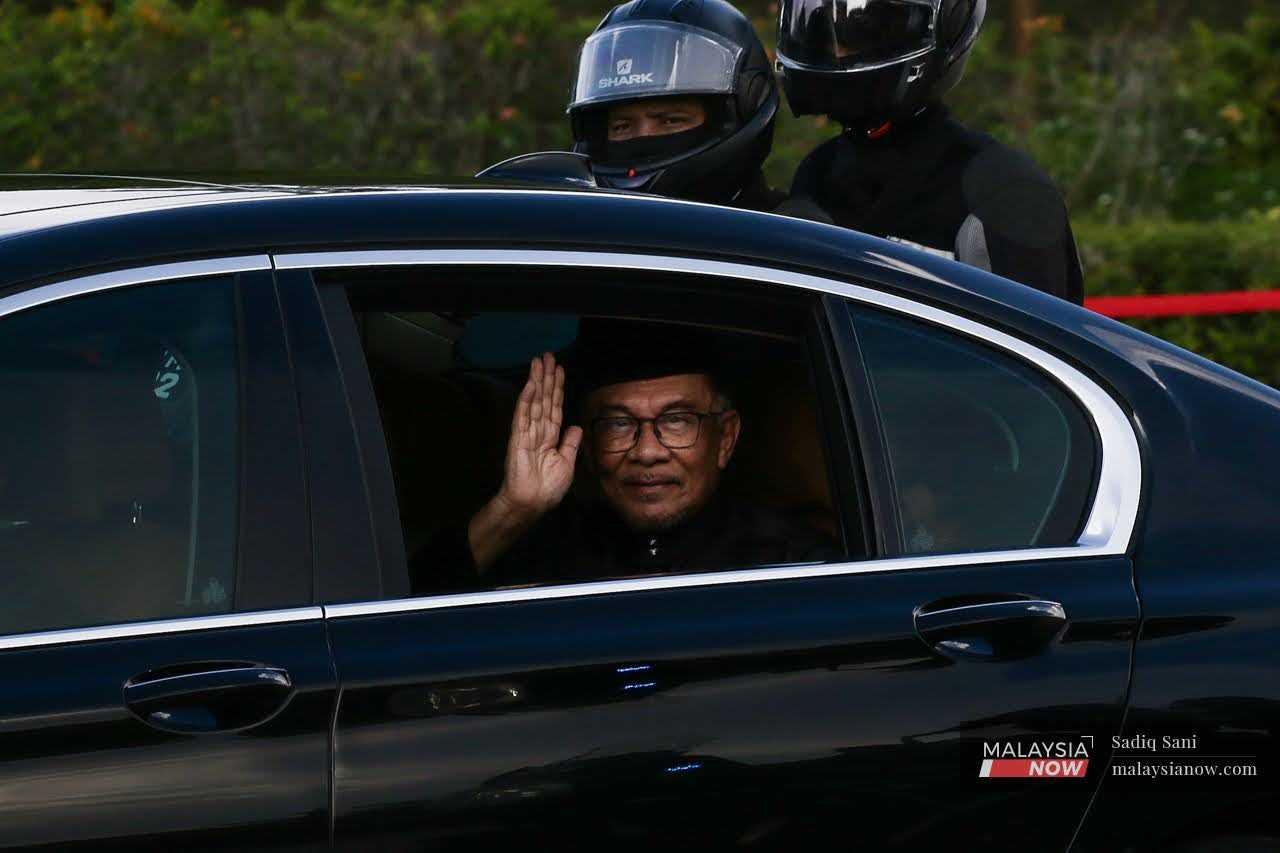Anwar's Malay dilemma
The Malays will respect the rulers' decision, but whether they will sit idle as Anwar leads the country is far from certain.
Just In
Anwar Ibrahim may have won his long-fought battle to be prime minister of Malaysia but his most immediate battle is far from victorious. His old foe Dr Mahathir Mohamad could not do anything to prevent Anwar from becoming prime minister, but his old book "The Malay Dilemma" just might give Anwar some real headaches.
For a prime minister to have the solid backing of the people, the support of the Malays cannot be discounted. Pakatan Harapan (PH) only managed to get an estimated 11% of the Malay votes. That means, he was rejected by the majority of the Malays. With only about 38% of support, he was also rejected by 62% of the total voters.
He was lucky because the powers that be extended him an olive branch, garnering politicians to agree to a unity government that led to Anwar becoming prime minister. But those voters who did not choose him or PH will remember that their voices were sidelined.
The Malays will respect the rulers' decision, but whether they will sit idle as Anwar leads the country is far from certain. From recent history, we saw how the Malays gathered, putting aside their political differences to protest against PH's 22 months in the administration. With PAS and Bersatu’s increased support among the Malays, Anwar’s time as prime minister will be a rollercoaster ride for sure.
The 54% of Malay votes that went to Perikatan Nasional (PN) also showed that more than half the Malays rejected PH and BN. And yet, PH and BN were given the mantle to lead the nation.
Anwar’s first test will be the formation of the Cabinet. DAP will not want to see the court cluster from BN given seats in the Cabinet, what more if it involves positions like the deputy prime minister, defence or finance minister.
On the hand, some Umno leaders have warned that if Zahid is not given a deputy prime minister position, they might pull back their support for Anwar. Anwar’s delay tactic in the Cabinet formation is clearly a sign that he fears a backlash from either party, although DAP may let Anwar do his thing just to remain in the governing coalition.
Aside from the court cluster, giving important portfolios to DAP MPs would incur the wrath of the Malays. So expect Anwar to sideline DAP by giving them less important ministries – though DAP may accept this arrangement as they must have learnt some lessons from their 22 months in Putrajaya.
The next challenge will be ensuring that the Malays are really taken care of in Anwar’s budget. The budget must be very Malay-centric, probably even at the expense of the non-Malays. Anwar’s "anak Cina anak saya, anak India anak saya" rhetoric may not be given priority in the budget, for if he gives more to the non-Malays, he will lose more Malay support.
Anwar’s future Cabinet will also have to make sure that they don’t upset the Malays even more, which also means that the non-Malays will have to back down and accept less than what they want in everything Anwar’s administration wants to do.
With Umno's internal struggles and the shift to PN, unless Anwar gives them a lifeline with many important Cabinet portfolios, Umno will cease to exist, leaving the Malays with only one strong choice to represent their voice in the future: PN.
Mujahidin Zulkiffli is a former political secretary to the foreign minister.
The views expressed in this article are those of the author(s) and do not necessarily reflect the position of MalaysiaNow.
Subscribe to our newsletter
To be updated with all the latest news and analyses daily.
Most Read
No articles found.
